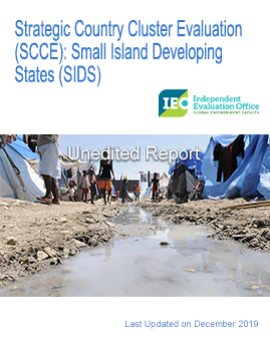The Independent Evaluation Office of the United Nations Development Programme (UNDP) and the International Development Evaluation Association (IDEAS) discuss the role of evaluation in the Sustainable Development Goals (SDGs). This book provides an overview of some of the crucial transformations we see in development, and how evaluation plays an important role in these changes. The chapters in part I make important points on how evaluation contributes to some of the most significant issues of our time, such as inclusive societies, reducing the carbon footprint of our economies, and gender and equity. Capacities and capabilities for evaluation of progress toward the SDGs are explored in part II. Part III is devoted to regional and national perspectives, underscoring that evaluation is becoming increasingly relevant to countries' development priorities in many regions of the world. Part IV deals with safeguards and resettlement, and demonstrates the negative impacts of development displacement that governments need to be aware of. The book's last part addresses some of the enduring problems of evaluation: how to evaluate impact in complex circumstances; how to evaluate new partnerships and new forms of private sector involvement, such as social and environmental impact investing.
The chapter Evaluating Sustainable Development in SIDs - Lessons from the Pacific and the Caribbean (part III) is authored by Juha I. Uitto, Global Environment Facility Independent Evaluation Office; Jeremy Kohlitz, Institute for Sustainable Futures, University of Technology Sydney; and David Todd, Internatonal Development, Environment and Disasters.
